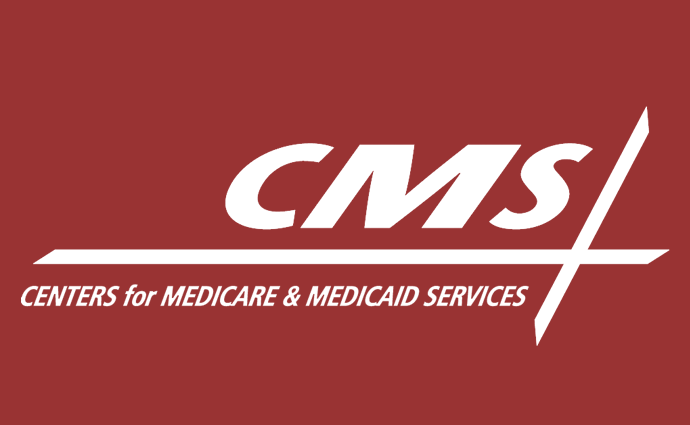CMS Pays Out $34B in Advance Medicare Reimbursement to Providers
The advance Medicare reimbursement will aid providers struggling to stay afloat during the COVID-19 crisis but will need to be paid back to CMS.

Source: Centers for Medicare & Medicaid Services
- UPDATED 04/04/2020: CMS has now approved over $51 billion in accelerated and advance Medicare reimbursement for providers, according to a news alert emailed to journalists on April 9. In a little over a week, CMS has approved over 21,000 of the 32,000 requests for the upfront payments.
In the past week alone, CMS delivered nearly $34 billion in advance Medicare reimbursement to providers facing challenges of the new COVID-19 world.
For more coronavirus updates, visit our resource page, updated twice daily by Xtelligent Healthcare Media.
According to the announcement on Tuesday, the billions of dollars in Medicare reimbursement is part of the Accelerated and Advance Payment Program, which was recently expanded to include more providers under the Coronavirus Aid, Relief, and Economic Security (CARES) Act. The program delivers expedited reimbursements to Medicare providers in times of national emergency or natural disaster.
The expansion of the program in light of the COVID-19 pandemic aims to offset financial losses recently incurred by providers who have had to cancel or postpone revenue-driving procedures for public safety.
READ MORE: Hospital Reimbursement for Uninsured COVID-19 Cases May Total $42B
“Healthcare providers are making massive financial sacrifices to care for the influx of coronavirus patients,” CMS Administrator Seema Verma said in the announcement. “Many are rightly complying with federal recommendations to delay non-essential elective surgeries to preserve capacity and personal protective equipment. They shouldn’t be penalized for doing the right thing. Amid a public health storm of unprecedented fury, these payments are helping providers and suppliers – so critical to defeating this terrible virus – stay afloat.”
CMS has recommended that healthcare providers across the care continuum delay or cancel non-emergent, elective medical services according to a tiered system. The move is intended to conserve critical healthcare resources and limit the transmission and exposure of patients and staff.
But many providers are finding that their offices cannot survive on non-elective services alone. Elective procedures are high margin services and normally drive revenue. Some practices and medical groups have already reported losing between 50 and 90 percent of their income as a result of the new recommendations, AMGA recently reported.
The Accelerated and Advance Payment Program will provide emergency funding to these providers by offering three to six months’ worth of Medicare reimbursement upfront. The reimbursement amount is based on historical payments. The payments are available to most Medicare Part A providers, including hospitals, and Medicare B suppliers, including physicians, non-physician practitioners, and durable medical equipment suppliers.
The recent expansion of the program will also streamline processing times, bringing them down to four to six days from the previous timeframe of three to four weeks.
READ MORE: AHA Asks for an Immediate $25K Per Hospital Bed to Combat COVID-19
CMS has already received over 25,000 requests from providers for the advanced reimbursement and it has approved over 17,000 of those requests in the last week, the agency recently announced.
That number is a stark difference to the 100 requests received in the past five years, the agency reported. Most previous requests were tied to natural disasters, such as hurricanes.
More providers could also receive advance payments from their private payers. Following on the heels of CMS, UnitedHealth Group and Blue Shield of California recently announced they will speed up reimbursement, including incentive payments, for providers experiencing hardships during the COVID-19 pandemic.
But the upfront reimbursements will come at a price. These are loans to help providers weather the COVID-19 storm, the payers stressed.
The Accelerated and Advance Payment Program takes funds from the Hospital Insurance (Part A) and Supplementary Medical Insurance (Part B) trust funds, which are both used to pay out Medicare claims each day. Therefore, the advance reimbursement will be a loan to providers, CMS reported.
READ MORE: Playing Defense Key to Overcoming Fiscal Challenges of COVID-19
The federal agency will start to apply claims payments to offset the advance reimbursements 120 days after disbursement. Most hospitals will have up to a year to repay the full balance, while certain Part A providers and all other Part B suppliers will have 210 days, according to the announcement.
In the meantime, Blue Shield of California also promised “favorable repayment terms to help providers get through the next six months.” The payer is currently finalizing details for its advance payment program.
Advance reimbursement will offer much-needed short-term relief for providers impacted by the COVID-19 crisis but some fear that the programs could lead to longer-term cash flow issues.
“[W]e appreciate the efforts of Congress and CMS to expand the eligibility for these payments and offer more flexible repayment arrangements. Importantly, however, neither the CARES Act provision nor the expansion by CMS lowered the rate of interest on monies owed,” the American Hospital Association (AHA) said in an April 6 letter to CMS Administrator Verma.
The association reported that, based on information provided to the AHA in response to a March 30 letter and during CMS’ April 2 conference call, any outstanding balance at the end of the repayment period will be subject to interest. Those interest rates could be as high as 10.25 percent per the prevailing rate set by the Treasury Department.
“This high interest rate can put hospitals at further financial risk while they are already vulnerable, and may prevent hospitals from requesting crucial accelerated/advanced payments,” the AHA stated.
The association called on CMS to waive interest on payments made through the program or, at least, lower the interest rate to the two percent interest rate currently set by the Treasury Department.
For more information on how to apply for accelerated or advance Medicare reimbursement, please visit your Medicare Administrative Contractor (MAC) website. Information on programs run by private payers can be found on their respective websites.
